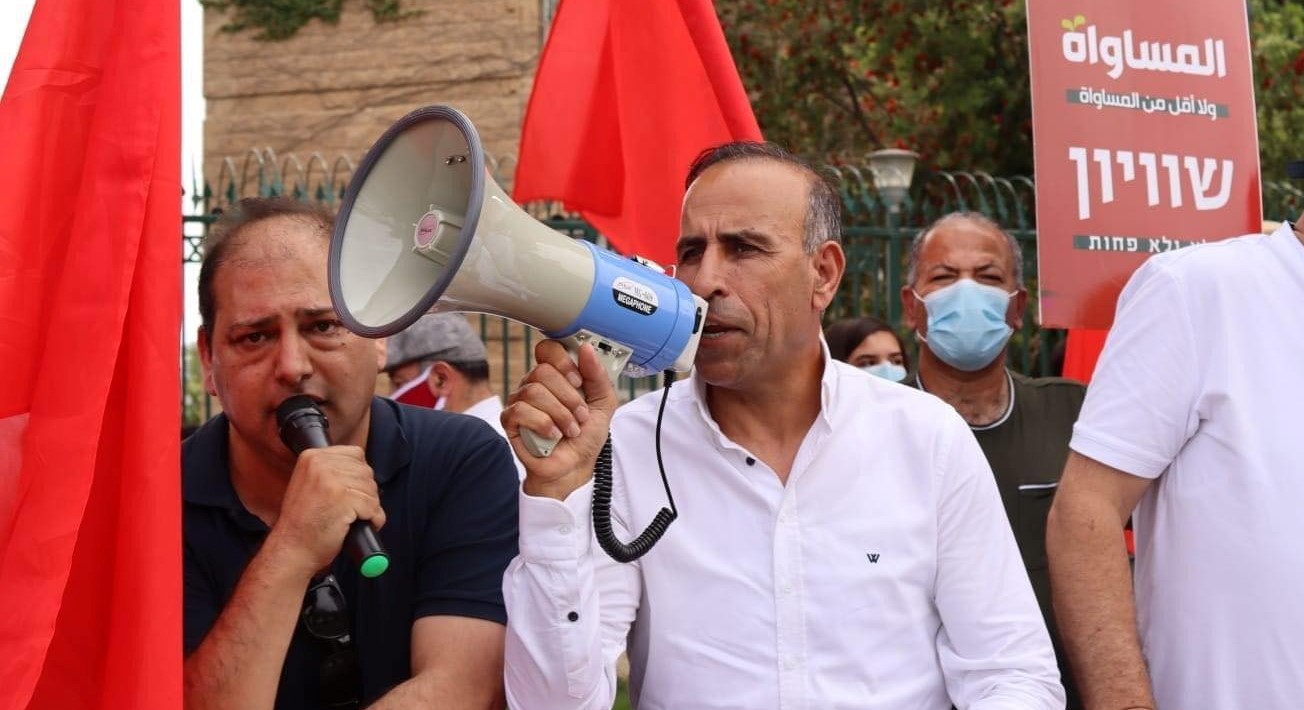Representatives of Hadash (The Democratic Front for Peace and Equality – the Communist Party of Israel’s electoral front founded in 1977) and the three Arab parties (Balad, Ta’al and Ra’am), which compose the Joint List, said on Wednesday night, January 27, that negotiations to maintain the unity of the bloc have failed, making it likely that they will not run together in the coming March elections.
On Thursday, January 28, the Knesset House Committee approved the breakup of the Joint List alliance, whose four factions are now set to run in the March elections as three separate parties, increasing the odds that at least one of them will fail to pass the electoral threshold. The Hadash and Balad factions will continue as the Joint List alliance, while Mansour Abbas’s Ra’am and Ahmad Tibi’s Ta’al will currently each run separately. However, because of the danger of not passing the electoral threshold (3.25% of the validated ballots cast) there is a possibility that, if no last minute resolution to the Joint List split takes place before the February 4 deadline to submit final lists of candidates to the Central Elections Committee, Ra’am and Ta’al will also run together.

Hadash’s Secretary General Mansour Dahamsheh, during a demonstration in front of the Knesset, Jerusalem, May 20, 2020: “There will be no Joint List with four parties. The negotiations are over.” The placard in the background reads: “Equality and nothing less.” (Photo: Zo Haderech)
Hadash Secretary General Mansour Dahamsheh, who participated in the talks on Wednesday night, said, “There will be no Joint List with four parties. The negotiations are over,” Adding “The Joint List is continuing without Mansour Abbas, who has chosen the side of the far-right government over democracy and the interests of the Arab community.”
“Unfortunately, we’ve failed. The Joint List will not continue in its current lineup,” said the Hadash spokesperson, “At this point, we cannot continue as the Joint List because of our fundamental political differences.” “Joining, aiding or abetting the right-wing government, annexation of the occupied Palestinian territories or settlements is a red line from our perspective. We won’t allow a branch of the Likud party in the Joint List,” Hadash said in a statement. According to Hadash MK Aida Touma-Sliman, “[Mansour] Abbas is the responsible of the breakup; he had renounced all the commitments and agreements we had.”
Tensions among Hadash and its partners in the Joint List had been rising steadily over the past few months, stoked by MK Mansour Abbas, the renegade chief of the Islamic Ra’am party (Ra’am is the Hebrew acronym for the United Arab List). Abbas has publicly pursued closer ties with racist and far-right Prime Minister Benjamin Netanyahu, a move seen by his Joint List colleagues as being beyond the pale.
Ra’am has attempted to frame the debate in religious terms, publically demanding that the other parties refrain from voting in support of “perverts” and “perversion” (sic – LGTBs). The demand is a thinly veiled reference to Hadash’s decision to vote in favor of a bill that outlawed so-called “conversion therapy” for LGBTs and their rights. “They both refuse to respect the values of religion and society, and also want to cool their heels on the bench of the political arena,” Abbas said on Wednesday.
Ra’am further demanded total freedom in its voting — including the freedom to vote for Netanyahu’s immunity from prosecution. Last year, Netanyahu was indicted on fraud, bribery and breach of trust and the continuation of his trial is currently postponed, purportedly due to the coronavirus crisis. The prime minister has long been believed to be seeking the passage of legislation that would make him immune from prosecution. The other three Joint List parties have demanded that Ra’am adhere to the alliance’s decisions, and said supporting immunity for Netanyahu would constitute crossing a red line.
Three meetings between Joint List representatives were held over the past week in an attempt to maintain the bloc’s unity ahead of the March 23 elections. However, the clashes — both in private and in the media — have only intensified over the past few weeks, as the Arab parties took shots at one another in public. The tensions have been compounded by an aggressive campaign by Netanyahu to court Arab votes. Netanyahu, previously known more for racist declarations and for denouncing Arab voters heading to vote “in droves” against him, has been regularly meeting with Arab mayors in an attempt to gain votes from their constituencies.
Related:


